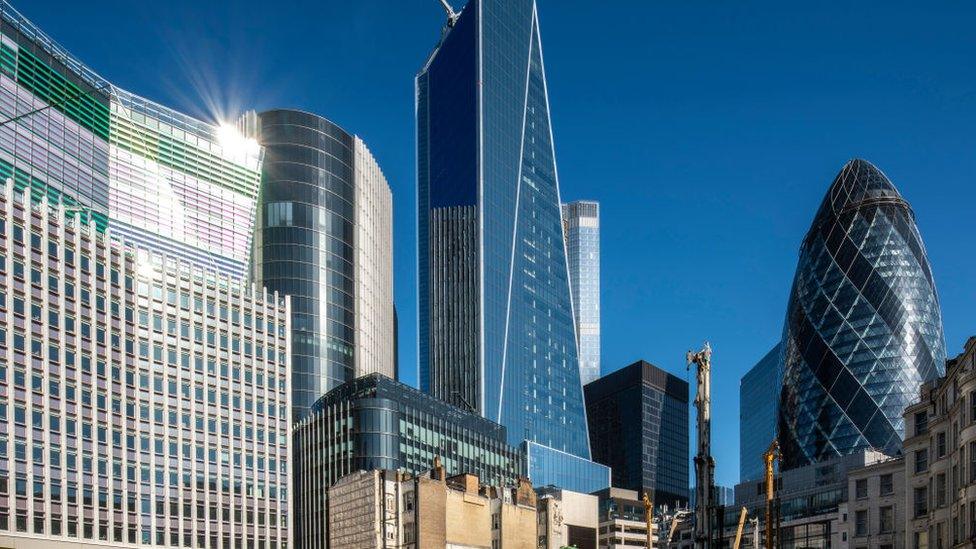COP26: Countries must make bold compromises at summit - PM
- Published
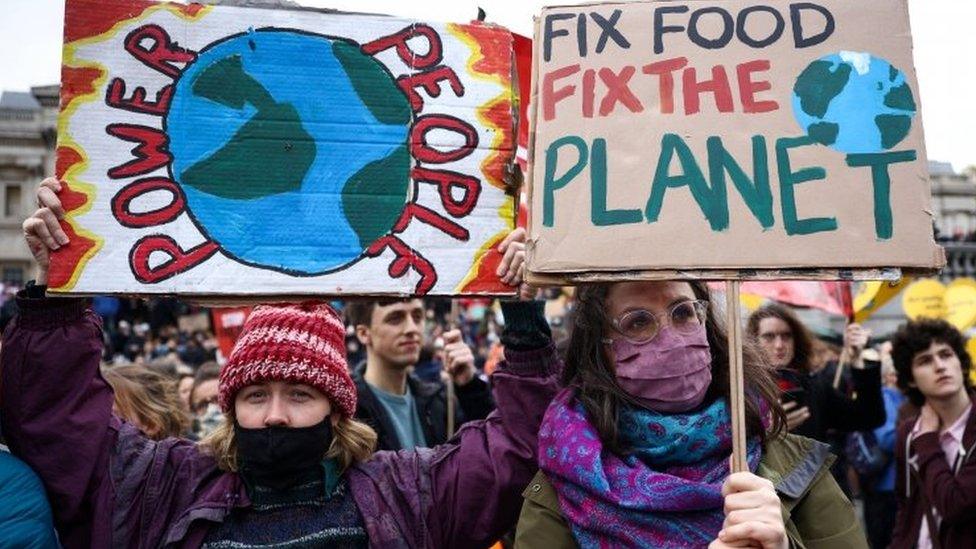
Thousands of people took part in protests around the world on Saturday to demand action on climate change
Ministers and negotiators at COP26 should "pull together and drive for the line" to secure ambitious action on climate change, Boris Johnson has said.
The prime minister said countries must be ready to "make the bold compromises and ambitious commitments needed" at the final week of the climate summit.
Talks will continue in Glasgow, including on what is needed to limit global temperature rises to 1.5C.
Thousands of protesters gathered on Saturday in cities around the world.
About 100 climate change demonstrations were held in parts of the UK - including Glasgow, London and Cardiff - while events also took place in Kenya, Turkey, France, Brazil, Australia and Canada.
Glasgow's rally was the largest the city had ever seen, police said, with about 100,000 people taking part.
The police arrested 21 scientists at the march. The individuals arrested had chained themselves together and blocked a road bridge to the River Clyde.
Meanwhile, in a new development, Environment Secretary George Eustice - who is at the summit - has suggested the government is looking at introducing a carbon border tax.
This would be a tax on goods - such as food, mobile phones or cement - coming to the UK from countries that do not meet the UK's obligations on climate action.
He told BBC One's Andrew Marr Show it would take time to do and ideally would be done multilaterally.
"We are not going to export pollution," he said. "If you don't want to do that, you do want to consider something like a carbon border tax."
Last week, world leaders attended the first half of COP26 and a series of announcements were made, including:
The summit's first major deal, which saw more than 100 world leaders promise to end and reverse deforestation by 2030
The US and the EU unveiling of global partnership to cut emissions of the greenhouse gas methane by 2030. More than 100 countries have signed up to the initiative
More than 40 countries committing to shift away from coal
Chancellor Rishi Sunak setting out plans to encourage large firms to work towards the UK's 2050 net-zero target
A deal in which South Africa is set to receive $8.5bn (£6.2bn) to help end its reliance on coal
The parts of the Paris Agreement - the world's first comprehensive deal to tackle climate change - that still need finalising involve markets for trading carbon emissions, transparency over what countries are doing, and common timeframes for action.
Discussions will also continue on negotiations on finance for poor countries to adapt to a changing climate as well as on a "cover decision" pledge from the summit. This will set out how countries will close the gap between the action to cut emissions they have pledged and what is needed to avoid dangerous temperature rises of more than 1.5C.
The world is now about 1.2C warmer than it was in the 19th Century - and extreme weather events like heatwaves, floods and forest fires are already becoming more intense. But unless more is done, the planet is already on course to warm by more than 2C by the end of this century.
Several countries, as well as UN secretary-general Antonio Guterres, want accelerated action on emissions cuts this decade to keep the 1.5C goal alive.
Experts and climate change campaigners have welcomed the commitments, but argued they need to be delivered on - warning a previous deal in 2014 had "failed to slow deforestation at all".
Similarly, activists have argued the deal on coal "falls well short of the ambition needed", as the "small print gives countries enormous leeway" to choose when to phase out the fossil fuel.
Mr Johnson said: "There is one week left for COP26 to deliver for the world, and we must all pull together and drive for the line."
He said nations had brought "ambition and action to help limit rising temperatures", and referred to the pledges that have been made during COP26 - including on deforestation and methane emissions.
"But we cannot underestimate the task at hand to keep 1.5C alive," he added.
"Countries must come back to the table this week ready to make the bold compromises and ambitious commitments needed."
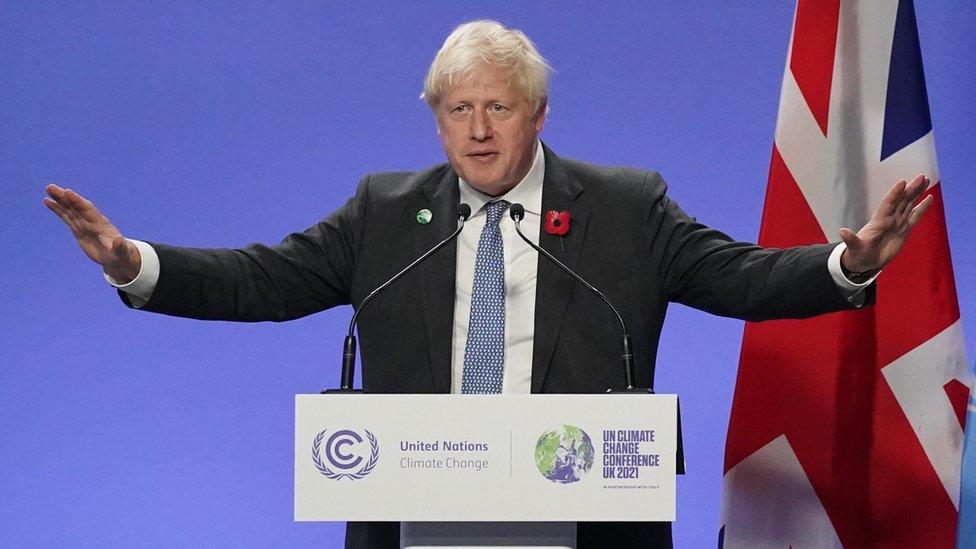
Shadow business secretary Ed Miliband has warned the world is a "long way off" where it needs to be to take the "major steps" to ensure global warming does not exceed 1.5C.
The Labour MP urged the prime minister to personally head up the negotiations in the final days of COP26, rather than engaging in "empty exhortation and commentary".
He said: "We have a right to expect him to engage directly in these final days, personally driving these negotiations forward, pushing all the major emitters to do more, delivering the finance required for developing and vulnerable countries and ensuring we have a path out of Glasgow to keep 1.5 alive.
"He needs to step up with focus, clarity and urgency in the face of the massive task the world faces in the coming days."
COP26 president Alok Sharma said the billions of dollars to restore the natural world that had been promised during the first week of the summit was humanity's "first line of defence" against the crisis.
He told a news conference in Glasgow on Saturday that if the world reaches global warming of 1.5C above industrial levels, 70% of coral reefs would be lost. If it gets to 2C, they would all die, he said.
Mr Sharma said the UK will provide £500m to protect more than five million hectares of tropical rainforests and create thousands of green jobs across Africa, Asia and Latin America.
The UK is also launching a £65m Just Rural Transition support programme to help communities move towards more sustainable methods of agriculture and food production, he added.


Idris Elba discusses food security at a COP26 news conference in Glasgow
Activists speaking at Saturday's climate change march in Glasgow included Ugandan activist Vanessa Nakate, actor Idris Elba and representatives of indigenous people.
Ms Nakate told the crowd: "The climate and ecological crises are already here. But so are citizens from around the globe.
"Leaders rarely have the courage to lead. It takes citizens, people like you and me, to rise up and demand action. And when we do that in great enough numbers, our leaders will move."


Related topics
- Published6 November 2021
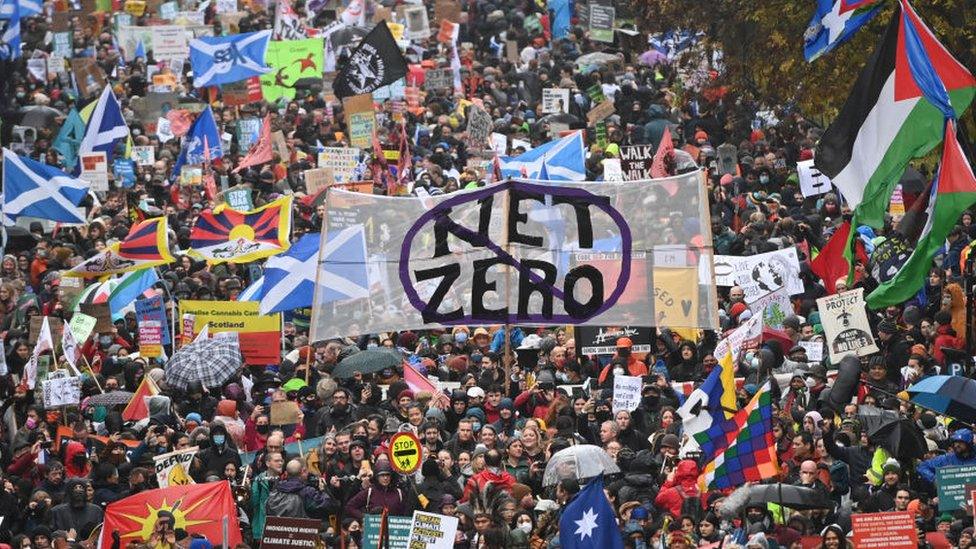
- Published2 November 2021
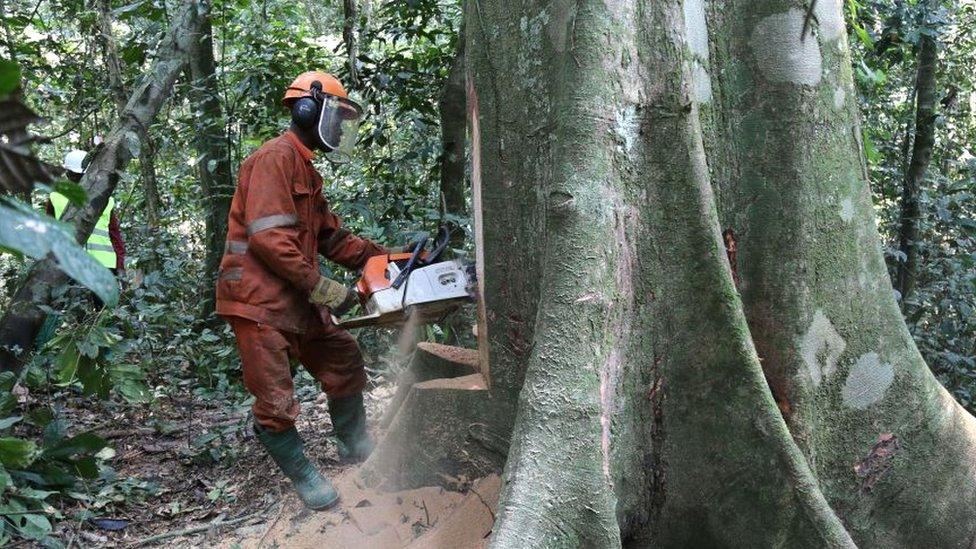
- Published2 November 2021
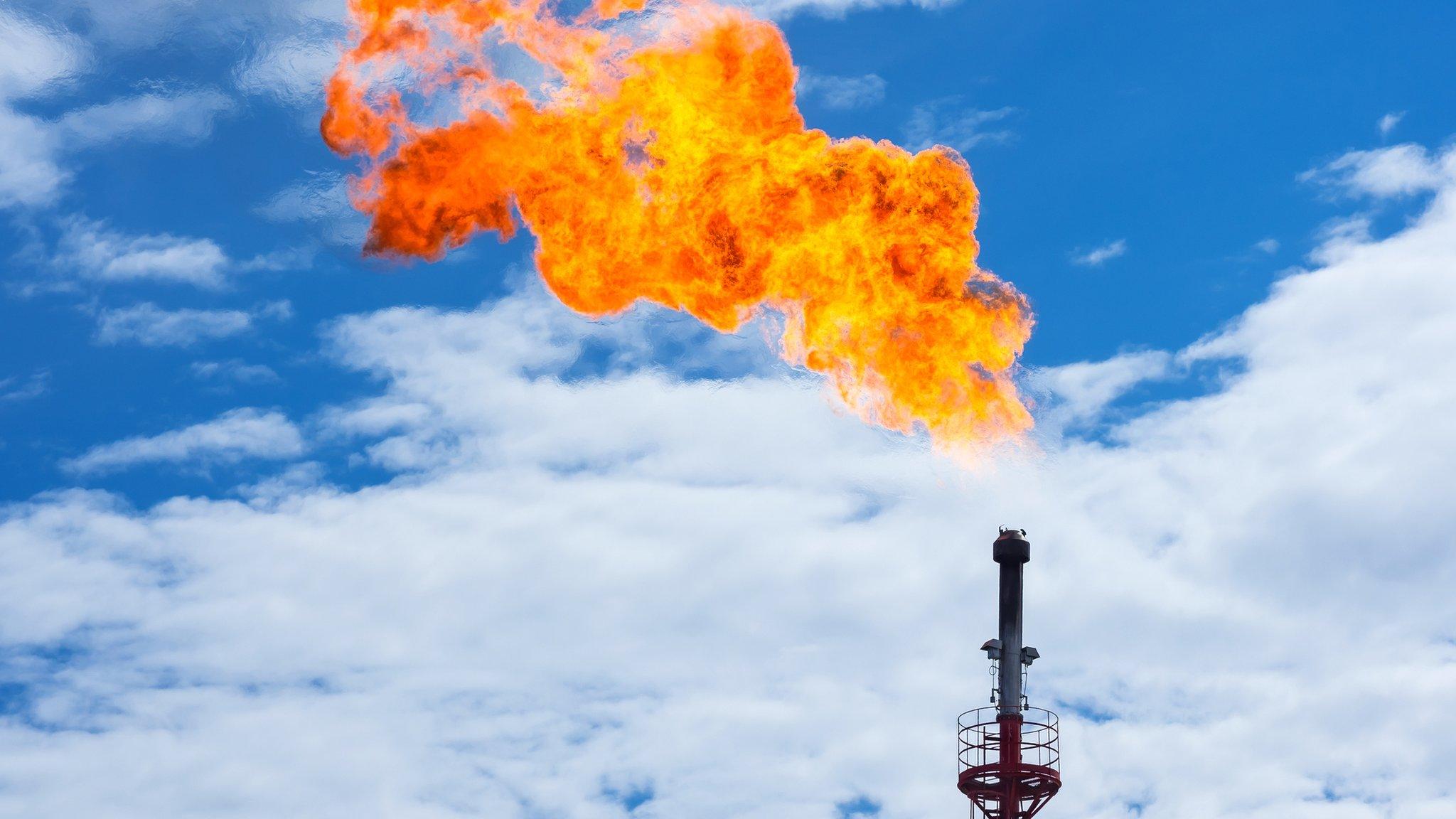
- Published4 November 2021
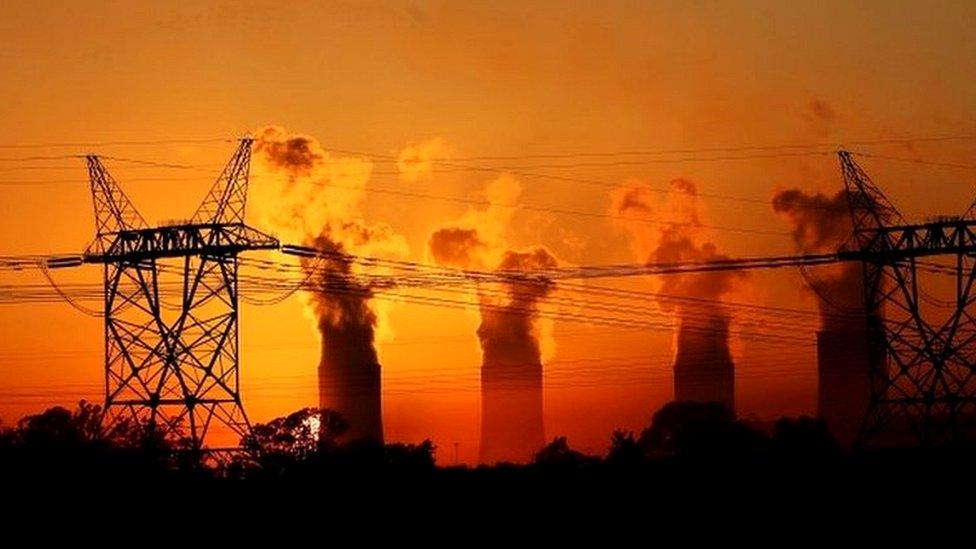
- Published3 November 2021
